Day 211
8 hrs, 13
.1 kms
Note: date has been changed to keep my entries in geographic order
Many Americans are obsessed with the Civil War. Thousands gather to reenact the battles, dressed in 1860s uniforms... thousands of books have been written about it, biographies about all the major generals, details about every single battle... Even now there are many Civil War afficcionados who can recite all the stats and tell you about the maneuvers of every single battle... The battlefields are still some of the biggest tourist attractions...
Why? Why are people so fascinated by a war that we still can't fully explain why we fought? I have a couple of theories:
First, it's the only full scale war fought in the United States (unless you count the even more confusing War of 1812). Other countries have the luxury (?) of having dozens of wars in their history that they can study and reenact, we only have one truly all-American war--so let's milk it for all its worth!
Secondly, Americans love strategy, goals, statistics (just look at our favorite sport: American football)
. The Civil War is all about complex strategies, and people love that.
Thirdly, the Civil War was perhaps the last great Napoleon-style war--that flamboyant, dramatic style of war when huge armies faced off fearlessly in open fields. Many people have a nostalgia for that style of warfare--it just seems so courageous, noble and manly to see images of men marching in unison, looking their enemy in the eye... In comparison, World War I seems downright depressing, with men huddled in trenches, stuck for months at a time, just not really doing much. During and after the Civil War, warfare became so mechanized that it just isn't quite as fun any more, from a war afficcionado's point of view. So, for anybody fascinated by the history of warfare, this is definitely a war to study.
But as I come to Gettysburg, where the most important battle of this war was fought, I'm not really interested in strategies, grand battles or who did what..
. I've got some deeper questions that I still haven't found satisfactory answers for. For example:
What was the REAL reason for this war? The official reason is that it was about slavery. But millions of Americans (especially those in the South) believe that it wasn't about that--it was about states rights. But neither of those seem to be logical reasons for fighting the bloodiest war in all our history. I can understand wars between tribes. I can understand wars of a powerful country attacking a weaker country (I think it's a bad thing--but I can understand the reasons for it). I can even understand wars about religion--I think they're stupid--but I can understand how religious extremism can make people completely irrational and drive them to kill.
But war about an economic and social structure? I just don't get it.
Even if it was about slavery, then why was in that all other modern nations of that time were able to end slavery without a bloody civil war, and the United States wasn't?
And if the South was really fighting defend slavery, weren't there any forward thinking leaders that were able to see that slavery was a dying institution that they were going to have to give up eventually anyways--if they wanted to remain a part of the modern, progressive world?
Finally, why was it that the body count was able to get so high and nobody in power seems to have had the common sense to say "wait
... wait... wait! this is really stupid. We're Christian Americans slaughtering other Christian Americans by the hundreds of thousands... We have no reason to hate each other--much less massacre each other. There's GOT to be a better way to work something out!"
The Cemetery for the Black Soldiers
So today I'm just going to wander around Gettysburg and see what I see, just think, and see what answers I come up with. I'm not going to suddenly become a Civil War expert, and there's a good chance that I will be wrong on some of my conclusions, but as an American I do have the right to have and express an opinion about a touchy subject--even if I'm wrong. So here's my two cents worth.
I start in town, where there's a nice mural of the city--with no images of the battlefield... just about farmland and historical buildings. Yes, it is nice to see that for folks here Gettysburg isn't just about a historical battle. People are surprisingly friendly, even though I'm sure they get tired of the tourists who clog up their roads
....
I don't want to just follow the official tour routes--and I'm glad I don't. Down a side street I come across something that's off the tourist route... something that gives me a key insight into this war: it's the cemetery for the black soldiers who died on the side of the Union. There's a plaque that reads that the people of Gettysburg didn't want black people (even those fighting for their country) to be buried in their "white" cemetery so the set aside this plot of land for the black soldiers.
This is a cold reminder that, no, people in the north were not at all ready for an integrated society where people of all races were treated equally. This idea that somehow the northerners were fighting and dying heroically so that blacks could achieve equality is simply too hard for me to believe. I don't even think the soldiers were fighting to end slavery. I'm just too cynical about human nature to accept that. People care about themselves and those close to them, they will not fight for a people with whom they have no connection
. For me saying that they fought to end slavery is as absurd as saying that in 2003 Americans went to fight and die in Iraq because they really, really wanted to free the poor Iraqis from cruel Saddam Hussein.
So what motivated the northerners to fight? At the beginning there was no shortage of volunteers. It wasn't until the war started dragging on and the body count mounted that there were draft riots.
I ponder this as I start my walk through the vast battlefield park, lined with monuments to the regiments from every state. It starts to make sense: few of these young men had never experienced war. And when you've never experienced war, war seems fun, exciting--the ultimate macho thrill... especially when you're confident you will quickly deliver a crushing blow to the "enemy" (whoever that be--you don't care). You don't even need a good, logical reason that you fully understand. If your country is going to war, you want to be in on the fun, whatever the reason be
.
Actually, the Civil War should be called the War of Miscalculations. The North thought they would win very quickly... and the South thought that the North would give up very quickly. It all seemed like a exciting game, at first.
I guess having seen the pro-war euphoria in 2003, and how a huge chunk of the American population was swept into this pseudo-patriotic chest beating bravado. "Oh yeah! Let's go kick some ass!" was the general attitude. Few people it seems really stopped to question if this war was really necessary and the reasons were really legitimate. War is fun, when you think you're going to win very quickly and with minimal losses.
So yeah, I guess I can understand how the masses got sucked into this war that they probably didn't understand very well.
But what about the South? What motivated them to fight? I think about our modern day ultra-conservatives who constantly seem to feel that their "way of life" is under threat--whether it by by immigrants, gays, liberals, athiests--anybody who wants any sort of change--they always seem to think that their "perfect" world is being threatened and/or destroyed, and even claim that they're ready to fight to defend their culture
.
So, thinking of that, I guess I can understand how Southerners, even poor, non-slave owners, may have seen their "perfect Southern culture" to be under threat by these meddling Northerners, and were ready to fight to defend their way of life (slavery being an integral part of it). I guess I can believe that they were so narrow minded thinking that the way things were was the ONLY viable option--no other economic-social system was even worth considering. I can believe that because there are many equally narrow minded people in this country today.
And of course, once Northern soldiers set foot on Southern soil, the whole idea that they were "defending themselves from an invasion" kicked in, giving a whole new incentive to keep fighting.
But what about the Leaders?
OK, so I've come to terms with how I think the masses were suckered into fighting this war... but what about the leaders, the decisionmakers? What really was their reason for starting--and dragging out this war?
I think of this as I gaze up at the statues to these generals and politicians, put atop these high pillars as these great heroes who accomplished wonderful things for their country
.
I ask a lady next to me, as we gaze out from under the shadow of Abraham Lincoln. "What do you think was the reason behind the Civil War?"
"Power" was her simple, but very wise reply.
Again, back to my understanding of human nature. When a person has power, typically he does everything he can to hold onto that power. I'm quite confident that this was a huge factor in motivating the leaders on both sides to keep this war going on for so long and with so many casualties.
At the beginning, with it looked like this was going to be a simple conflict to resolve, maybe their intentions were sort of good. Lincoln wanted to stop the expansion of slavery (definitely a positive motive) and he wanted to hold the country together. That, I think, was good thing too. A president can't just let any state or region just secede from the country at a whim--otherwise countries will just be splintered into tiny, weak little fragments
. And sometime the government does have to crack down violently on violent insurrections.
In the south, maybe the Jefferson Davis and the Southern governers had some logical motives as well. Perhaps they felt they were acting in the best interest of their constituents, that breaking away from the Union was the best thing for Southern white folks.
I do agree, that there is a time and a place for regions to break away from their mother country. Having visited places like Ireland, etc. I'm glad these oppressed peoples have finally gotten their own independent country.
OK... so I guess I can come to terms with the logic of how this all started out. But...
What happens when the body count just starts climbing... climbing...? When you see entire columns of young men lying dead, still in formation like a harvested row of corn? When more people die in 2 days then they had in all previous American wars COMBINED?!
C'mon
... at some point, you're no longer acting "in the best interest of your constituents" How can you be acting in their interest if 30 % of your young men are DEAD?! And all that was needed for this to be over was for the president of one side or the other to cry uncle?
"All's well that ends well" some may say. The country stayed together... slavery ended... and eventually the Southern economy got pieced back together. This is what was supposed to happen... so dragging out the war was the right thing... so the politicians and generals who were responsible for dragging this out were heroes...
No. Remember, this was not a war for survival. This was a war of convenience. It could have been ended at any time. Either side could have given into the demands of the other side, and things would have gotten sorted out eventually. And it didn't because, in my humble non-expert opinion, the leaders on both sides became so blinded by their goals and their lust to stay in power, that they simply didn't care how many people had to die--as long as they were still in control, and their goals were achieved
.
Suddenly, my mind comes back to the present. I think of a Civil War that is going on right now in another part of the world. And the president of this country has precisely this attitude: he doesn't care how many of his people die, as long as he stays in power and the country stays together. And he is considered by many the worst villian in the world right now.
I'm not saying that all those Civil War guys were villians at this level. There are some major differences. But they certainly were not heroes. Heroes, in my mind, were the people who were trying to end the war before it completely devestated the country. But I don't see a single monument dedicated to those people. In fact, I don't even know who those people were.
"Oh!" some may say, "but if the North hadn't won, slavery wouldn't have ended!" I beg to differ. Slavery was a dying institution at that time. If the Southern Confederacy had become independent and continued to practice slavery, they would have become a pariah of the civilized world
. They were going to have to end slavery one way or another. And maybe, maybe if they had been allowed to transition out of slavery their own way, they wouldn't have vented their post Civil War anger on the blacks (since they couldn't vent it at the North), forcing them to live with unspeakable cruelties for the next 100 years AFTER the Civil War supposedly set the blacks free.
The Civil War was ultimately a war of attrition. When the battles ended (the most bloody battles in all US history), the body count was added up, and I guess it went something like this: "OK, we lost 10,000 men... but the other side also lost about 10,000 men... and we've got more replacements then they do (especially since we can send immigrants straight off the boat to war)... so let's just keep doing what we're doing, and we'll eventually kill so many that they'll have to give up"
That's a pretty f**d up, cynical to run a war--and claim you're doing it in the best interest of your country, if you ask me
.
I'm becoming less and less inspired all the statues of the "heroic" generals sending out their men like sheep to the slaughterhouse.
But what about the monuments to the soldiers themselves? The ones who actually fired the bullets? Surely these were courageous heroes, were they not?
Sorry, I'm just not feeling that either. Maybe it's just me, but if I were given a gun and told "See those guys on the other side of the field? Go kill them. Don't ask why. Just do it" I think I would be an idiot to obey. Not a hero. Any sensible, perceptive person on either side should've been able to figure out that, whatever differences there were between the North and South, they were not differences worth killing and dying for.
From my humble perspective, one of these guys would've been a hero if he had responded something like this. "Hey guys! our general is out of his mind! Those guys on the othe side are just decent, hard working, moral folks just like us
. We have no reason to kill them, they have no reason to kill us--in fact, some of us might have cousins over there! Let's just holler out to them and offer to resolve this whole conflict (whatever it is) with a game of checkers... And let's tie up our general here if he disagrees!"
In my mind there should be monument to the deserters. To the men who decided that this war simply wasn't one worth fighting, and just walked away to go on with their simple, non-violent lives. But no. To this day we're supposed to see those people as cowardly and un-patriotic.
Confederate Lane
It's getting dark as a reach the end of the battlefield and loop around the other side, up "Confederate Lane". Here you find momuments (albeit smaller) to the men who fought for each of the Southern States. Yeah, I guess I can understand that "honoring" the fallen from the South is part of the healing process. America has wisely not tried to paint the Southerners as all evil villians
. If you want to bring the country back together, you have to show respect to the men who fought on both sides.
I suppose the idea is to provide the families of the fallen with a monument dedicated to the sacrifice of their loved ones. Personally I would rather an apology and acknowledgement that the whole thing was a dumb mistake... But I know that won't happen. Putting soldiers of past wars on a pedestal is a great tool for recruiting a fresh batch of soldiers for our wars of the future. Soldiers who they hope will also be willing to kill and die without needing an explanation as to whether and why these wars are really necessary.
If we can't learn from our past mistakes--or at least acknowledge that they were mistakes--we're damned to repeat them.
The Civil Wars That Didn't Happen
As I walk back toward Gettysburg in the darkness, enjoying the still tranquility of the night... passed by an occasional, friendly jogger, I finally feel the cynicism start to fade away
. It was a dumb war--one of the most embarrassing events in America's history. A war we should look back on learn from our mistakes. But neither the war nor the people who fought it deserve to be glorified with these huge parks and statues.
So what event in America--and the world's history DO deserve to be glorified?
What about the Civil Wars that didn't happen? The times when there was conflict but people had the common sense to work things out and not go to war? Yeah that would be cool. Imagine a bigazz park dedicated to a battle that was never fought, because people were able to find a non violent solution?
My thoughts go to another time when Federal troops marched in the South once again. 100 years after the Civil War, the National Guard escorted black students into an all-white university, much to the chagrin of the Southerners. Once again, they felt that their "way of life" and culture was being threatened
. I sure many of them were ready and willing to kill and die to defend this way of life. And many blacks were also willing to kill and die to help their people break out of this system of oppression.
But this Civil War never took place. Blacks protested, for the most part non-violently. And the white politicians this time were able to see that times were changing and they needed to adapt if they wanted to survive. Many of them had sudden "changes of heart" going from being pro-segregation to anti-segregation... gently pressuring society to follow along... and America was able to peacefully transition into a new era.
That's a "Non-War" that I can get excited about. That whole miraculous (albeit imperfect) transformation that that took place is one of the proudest moments of our countries history.
Or let's go to another country. What about the time when the elite Russian troops were told to open fire on the protesters, who were struggling to keep the country from going back to Communism
... and the soldiers actually decided to use their brains and NOT fire on their own people? These are the types of soldiers that should have a bigazz monument built in their honor.
And so my Gettysburg tour comes to an end... on a positive note. I'm not proud of our Civil War. But I am proud of the fact that we've only had one in our 238 year history. I guess that's better than most countries.
Other Experiences in Gettysburg
My Gettysburg isn't just about analyzing the Civil War. I have a couple of cool encounters here as well. A lady, Trisha, offers to take my videoclip for me, and naturally I need to explain why I pose with my guitar in front of monuments.
Her face brightens up when I tell of my travels, "I love discovering places that everyone else overlooks--on the weekends, I go to look for a town somewhere to explore."
Looks like I've met a kindred spirit
. She tells me of her trip to Holland and France--and of her dream of exploring off the beaten track places in Poland...
As we talk, an older lady approaches, telling of her sons recent round the world trip...
It's great to rub shoulders with world travelers--even in sedentary Central Pennsylvania...
There's an Open Mike at the Ragged Edge Coffeehouse that I play at as well. Just a couple college age students... but it is fun to have the challenge of being up on stage versus just strumming on a park bench. My voice cracks and I forget my lyrics--but they don't seem to mind. I also chat with a poet who would like to have someone who could help her put her songs to music...
And so my Gettysburg adventure comes to an end--the climax of my 6 day loop around Adams county.
Being here really helped clear my mind and bring some closure to my understanding of the Civil War--and really war in general... so yeah, it was worth it.
Post-visit: The Civil Wars that didn't Happen
Saturday, January 18, 2014
 Gettysburg, Pennsylvania, United States
Gettysburg, Pennsylvania, United States
Other Entries
-
1Chambersburg Post-visit: Back with a New Attitude
Oct 04106 days prior Chambersburg, United Statesphoto_camera39videocam 0comment 0
Chambersburg, United Statesphoto_camera39videocam 0comment 0 -
2Postvisit A Walk down Memory Lane
Oct 05105 days prior Scotland, United Statesphoto_camera9videocam 0comment 0
Scotland, United Statesphoto_camera9videocam 0comment 0 -
31810. Crashing a Birthday Party
Oct 1991 days prior Fayetteville, United Statesphoto_camera38videocam 0comment 0
Fayetteville, United Statesphoto_camera38videocam 0comment 0 -
41811. Hiking with Uncle Dan
Nov 3049 days prior Fairfield, United Statesphoto_camera10videocam 0comment 0
Fairfield, United Statesphoto_camera10videocam 0comment 0 -
5Postvisit: Rebel Red State
Dec 0742 days prior Fairfield, United Statesphoto_camera20videocam 0comment 0
Fairfield, United Statesphoto_camera20videocam 0comment 0 -
61812. A Town that's Younger than Me
Dec 0742 days prior Carroll Valley, United Statesphoto_camera8videocam 0comment 0
Carroll Valley, United Statesphoto_camera8videocam 0comment 0 -
7Postvisit (0084): Hiking in Subzero Temperature
Dec 1435 days prior Emmitsburg, United Statesphoto_camera39videocam 0comment 0
Emmitsburg, United Statesphoto_camera39videocam 0comment 0 -
8Post-visit (0083): No Cafe Town
Dec 1435 days prior Taneytown, United Statesphoto_camera7videocam 0comment 0
Taneytown, United Statesphoto_camera7videocam 0comment 0 -
91813. A Town of Porches
Jan 0117 days prior Littlestown, United Statesphoto_camera10videocam 0comment 0
Littlestown, United Statesphoto_camera10videocam 0comment 0 -
101814. Lost
Jan 0117 days prior McSherrystown, United Statesphoto_camera15videocam 0comment 0
McSherrystown, United Statesphoto_camera15videocam 0comment 0 -
11Post-visit (0022): 6 1/2 Years Later
Jan 0414 days prior Hanover, United Statesphoto_camera9videocam 0comment 0
Hanover, United Statesphoto_camera9videocam 0comment 0 -
121815. German Pennsylvania
Jan 0414 days prior Abbottstown, United Statesphoto_camera10videocam 0comment 0
Abbottstown, United Statesphoto_camera10videocam 0comment 0 -
131816. Interesting Architecture.
Jan 0414 days prior East Berlin, United Statesphoto_camera9videocam 0comment 0
East Berlin, United Statesphoto_camera9videocam 0comment 0 -
141817. The Traffic Circle
Jan 117 days prior New Oxford, United Statesphoto_camera14videocam 0comment 0
New Oxford, United Statesphoto_camera14videocam 0comment 0 -
151818. Approaching Gettysburg
Jan 117 days prior Bonneauville, United Statesphoto_camera12videocam 0comment 0
Bonneauville, United Statesphoto_camera12videocam 0comment 0 -
16Post-visit: The Civil Wars that didn't Happen
Jan 18 Gettysburg, United Statesphoto_camera87videocam 0comment 0
Gettysburg, United Statesphoto_camera87videocam 0comment 0 -
171819. The White Squaw
Jan 257 days later Arendtsville, United Statesphoto_camera6videocam 0comment 0
Arendtsville, United Statesphoto_camera6videocam 0comment 0 -
181820. Apple Capital
Jan 257 days later Biglerville, United Statesphoto_camera6videocam 0comment 0
Biglerville, United Statesphoto_camera6videocam 0comment 0 -
191821. Encounters on the Appalachian Trail
Feb 0215 days later Bendersville, United Statesphoto_camera24videocam 0comment 0
Bendersville, United Statesphoto_camera24videocam 0comment 0 -
201822. The Old Country Store
Feb 2134 days later Mont Alto, United Statesphoto_camera9videocam 0comment 0
Mont Alto, United Statesphoto_camera9videocam 0comment 0 -
21Post-visit: Memories of 2000
Mar 0142 days later Waynesboro, United Statesphoto_camera24videocam 0comment 0
Waynesboro, United Statesphoto_camera24videocam 0comment 0 -
221823. Hiking in the Dark
Mar 0142 days later Smithsburg, United Statesphoto_camera6videocam 0comment 0
Smithsburg, United Statesphoto_camera6videocam 0comment 0 -
23Post-visit Hagerstown: A City Divided
Mar 0849 days later Hagerstown, United Statesphoto_camera47videocam 0comment 0
Hagerstown, United Statesphoto_camera47videocam 0comment 0 -
241824. Singing by the River
Mar 0849 days later Funkstown, United Statesphoto_camera5videocam 0comment 0
Funkstown, United Statesphoto_camera5videocam 0comment 0 -
251825. Crossing the Potomac
Mar 1556 days later Williamsport, United Statesphoto_camera28videocam 0comment 0
Williamsport, United Statesphoto_camera28videocam 0comment 0 -
26Postvisit: Entering West Virginia
Mar 1556 days later Martinsburg, United Statesphoto_camera8videocam 0comment 0
Martinsburg, United Statesphoto_camera8videocam 0comment 0 -
27Postvisit: A Thorough Exploring
Mar 2162 days later Martinsburg, United Statesphoto_camera13videocam 0comment 0
Martinsburg, United Statesphoto_camera13videocam 0comment 0 -
281826. Spy Retirement Town
Mar 2162 days later Shepherdstown, United Statesphoto_camera39videocam 0comment 0
Shepherdstown, United Statesphoto_camera39videocam 0comment 0 -
291827. The Bloodiest Day in American History
Mar 2869 days later Sharpsburg, United Statesphoto_camera37videocam 0comment 0
Sharpsburg, United Statesphoto_camera37videocam 0comment 0 -
301828. A Time for Reflection
Mar 2869 days later Keedysville, United Statesphoto_camera5videocam 0comment 0
Keedysville, United Statesphoto_camera5videocam 0comment 0 -
311831. Back on the C & O Canal
Apr 0173 days later Brunswick, United Statesphoto_camera15videocam 0comment 0
Brunswick, United Statesphoto_camera15videocam 0comment 0 -
321829. The Original Housing Crisis
Apr 0476 days later Boonsboro, United Statesphoto_camera14videocam 0comment 0
Boonsboro, United Statesphoto_camera14videocam 0comment 0 -
331830. Middletown Historical Society
Apr 0476 days later Middletown, United Statesphoto_camera24videocam 0comment 0
Middletown, United Statesphoto_camera24videocam 0comment 0 -
34Post-visit: Approaching the Megalopolis
Apr 1183 days later Frederick, United Statesphoto_camera48videocam 0comment 0
Frederick, United Statesphoto_camera48videocam 0comment 0

 Gettysburg, Pennsylvania, United States
Gettysburg, Pennsylvania, United States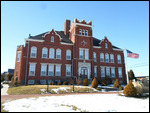
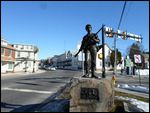
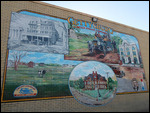
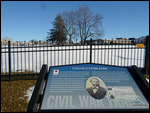
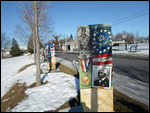
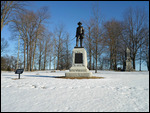
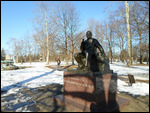
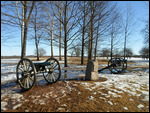
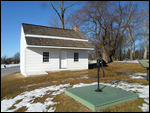
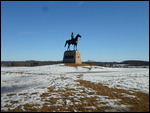
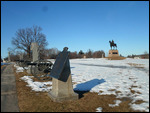
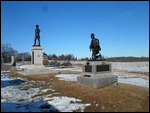
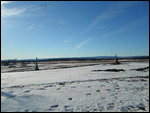
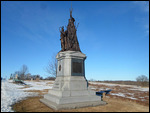
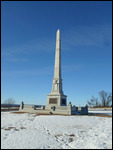
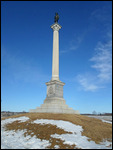
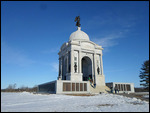
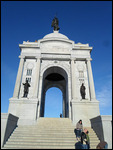
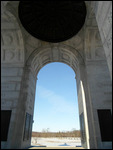
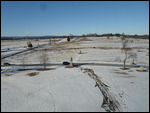

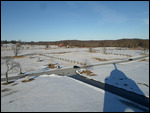
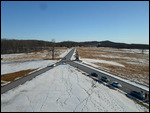
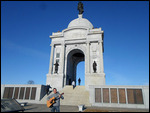
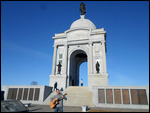
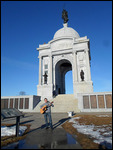

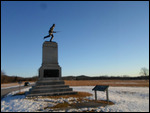
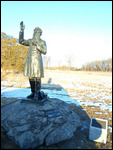
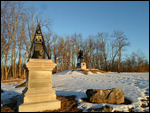


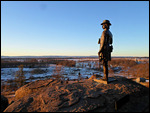
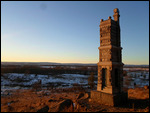
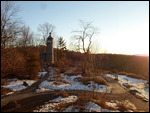
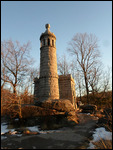

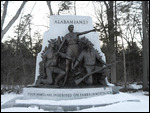
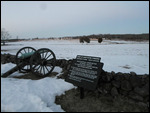

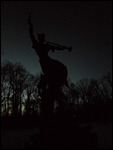
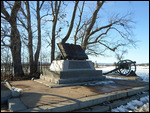


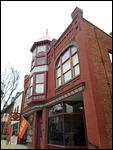

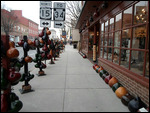
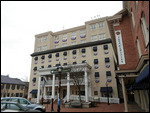
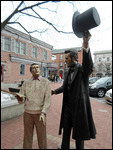
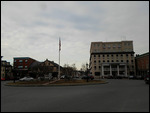
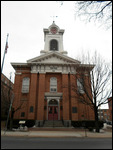
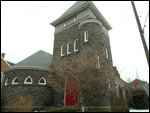
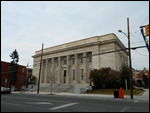

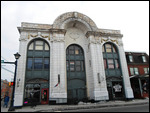
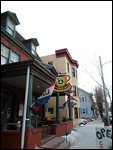
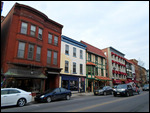

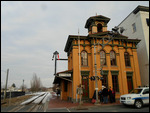



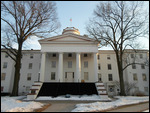
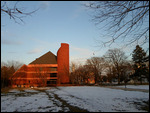
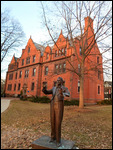
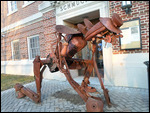
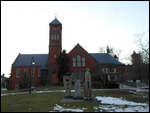
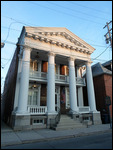
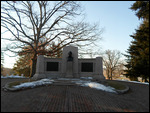
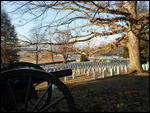
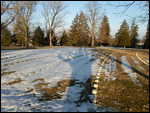
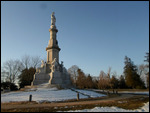
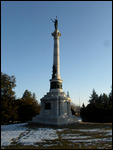
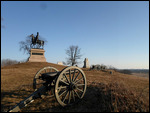
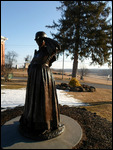
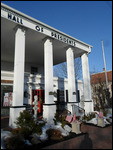

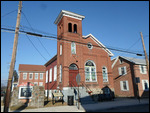
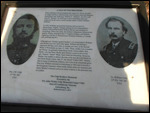
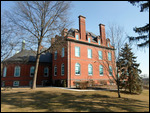
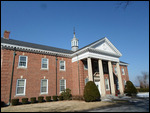
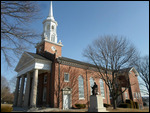
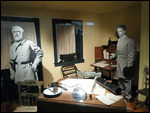
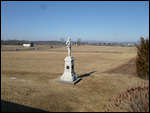
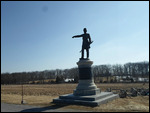
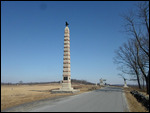
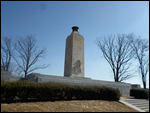
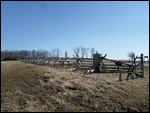
2025-05-22